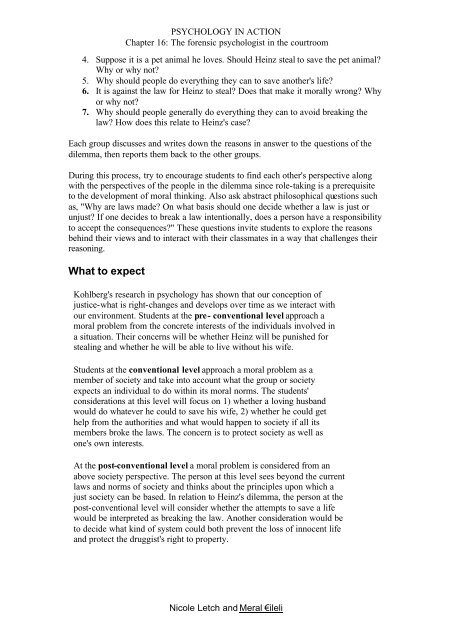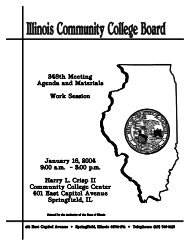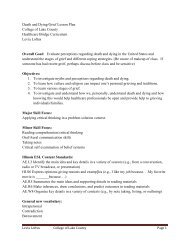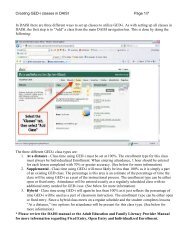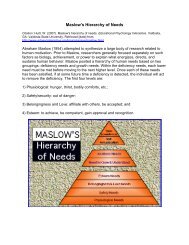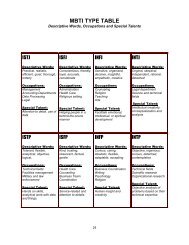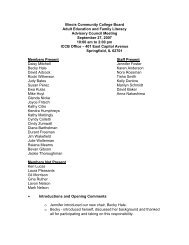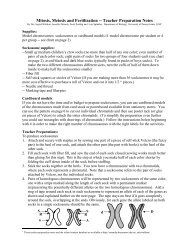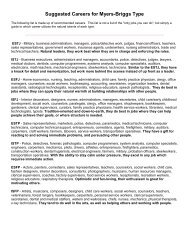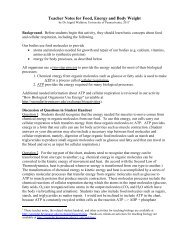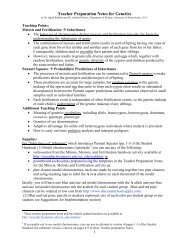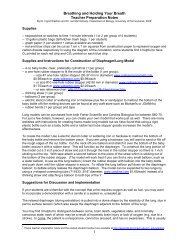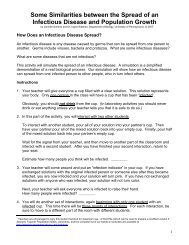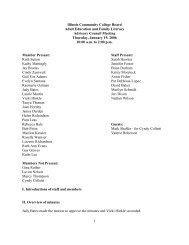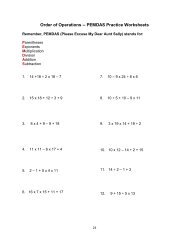Heinz's Dilemma Activity
Heinz's Dilemma Activity
Heinz's Dilemma Activity
Create successful ePaper yourself
Turn your PDF publications into a flip-book with our unique Google optimized e-Paper software.
PSYCHOLOGY IN ACTION<br />
Chapter 16: The forensic psychologist in the courtroom<br />
4. Suppose it is a pet animal he loves. Should Heinz steal to save the pet animal?<br />
Why or why not?<br />
5. Why should people do everything they can to save another's life?<br />
6. It is against the law for Heinz to steal? Does that make it morally wrong? Why<br />
or why not?<br />
7. Why should people generally do everything they can to avoid breaking the<br />
law? How does this relate to <strong>Heinz's</strong> case?<br />
Each group discusses and writes down the reasons in answer to the questions of the<br />
dilemma, then reports them back to the other groups.<br />
During this process, try to encourage students to find each other's perspective along<br />
with the perspectives of the people in the dilemma since role-taking is a prerequisite<br />
to the development of moral thinking. Also ask abstract philosophical questions such<br />
as, "Why are laws made? On what basis should one decide whether a law is just or<br />
unjust? If one decides to break a law intentionally, does a person have a responsibility<br />
to accept the consequences?" These questions invite students to explore the reasons<br />
behind their views and to interact with their classmates in a way that challenges their<br />
reasoning.<br />
What to expect<br />
Kohlberg's research in psychology has shown that our conception of<br />
justice-what is right-changes and develops over time as we interact with<br />
our environment. Students at the pre- conventional level approach a<br />
moral problem from the concrete interests of the individuals involved in<br />
a situation. Their concerns will be whether Heinz will be punished for<br />
stealing and whether he will be able to live without his wife.<br />
Students at the conventional level approach a moral problem as a<br />
member of society and take into account what the group or society<br />
expects an individual to do within its moral norms. The students'<br />
considerations at this level will focus on 1) whether a loving husband<br />
would do whatever he could to save his wife, 2) whether he could get<br />
help from the authorities and what would happen to society if all its<br />
members broke the laws. The concern is to protect society as well as<br />
one's own interests.<br />
At the post-conventional level a moral problem is considered from an<br />
above society perspective. The person at this level sees beyond the current<br />
laws and norms of society and thinks about the principles upon which a<br />
just society can be based. In relation to <strong>Heinz's</strong> dilemma, the person at the<br />
post-conventional level will consider whether the attempts to save a life<br />
would be interpreted as breaking the law. Another consideration would be<br />
to decide what kind of system could both prevent the loss of innocent life<br />
and protect the druggist's right to property.<br />
Nicole Letch and Meral €ileli


